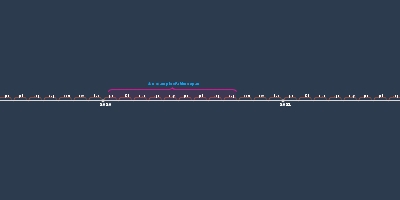Philistines & Ammonites (2 jan 1211 ano antes da era comum – 1 jan 1193 ano antes da era comum)
Descrição:
Egyptian chronology, 2838-342 BCE, through astronomically dated synchronisms and comparison with carbon-14 dating, by Gérard GertouxJair judged Israel for 22 years, but after his death no judge succeeded him and the land was given over to oppression by Philistines, Ammonites, Egyptians, etc. This period of trouble began in 1211 and got Israel into great distress for 18 years (Jg 10:3-13).
_____
Moses and the Exodus Chronological, Historical and Archaeological Evidence by Gérard GERTOUX
Merneptah Stele
____
The Atonement Clock by Christian Gedge
Israel's history accords with this scenario, fending off marauding sea peoples from the west and desert peoples from the east. It should not come as a surprise, therefore, that an Egyptian Pharaoh mentions Israel by name on his famous Merneptah stele. It reads:
"Seized is Canaan with every evil, Ashkelon is conquered, Gezer seized, Yenoam is brought to nought, Israel is wasted their crops are not." Merneptah's boast regarding the cities is not recorded in the Bible,
because the places mentioned were Canaanite cities not occupied by Israel, but existing within her tribal boundaries. However, his description concerning Israel's 'crops' is recorded with remarkable detail. An invasion by hordes of scavenging eastern people is vividly described in Judges 6:36.
So, Merneptah was not saying that Egypt did the damage; he was simply observing (with satisfaction) how Israel 's food supply was 'wasted.' With this in mind, please notice, his stele was engraved at the same time that the Bible said Israel's food source had been ruined!
Adicionado na linha do tempo:
Data:
2 jan 1211 ano antes da era comum
1 jan 1193 ano antes da era comum
~ 18 years
